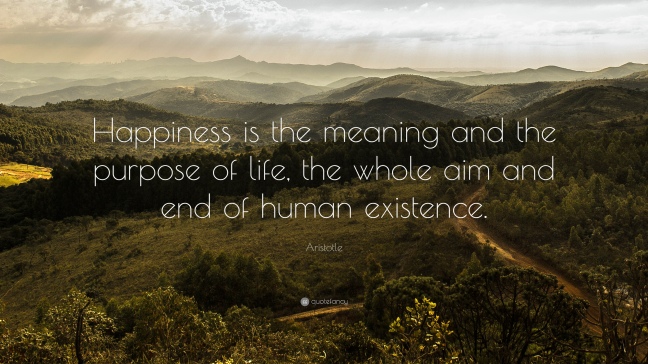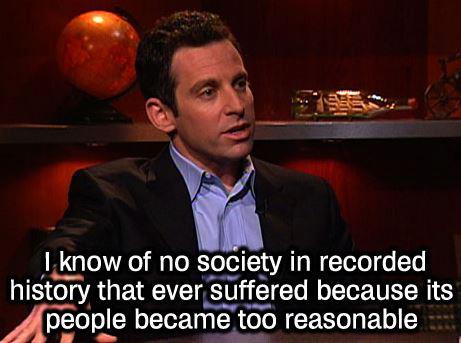An essay on existence, free will, and consciousness.
Since I started asking existential questions in my early twenties, I was always the rational type – if I couldn’t figure something out it really bothered me. Over time, however, a deep realization dawned on me that there are indeed very real phenomena that are fundamentally beyond logical thought. The idea that we will one day be able to explain everything logically and get rid of “magic” and mystery is mistaken, in my opinion. In this short essay I try to explain why.
Existence
Ethnobotanist and psychonaut Terrence McKenna is quoted as saying “Modern science is based on the principle: “Give us one free miracle, and we’ll explain the rest.” Whatever it is science is explaining, it is doing it in terms of something else. That “something else” has changed over the years from atoms to subatomic particles, and recently as vibrations of tiny “strings”. However, each and every such explanation must stop somewhere at something self-existent and irreducible (sometimes called “the ontological primitives”). It just exists. We don’t know how it got here and why it’s doing what it’s doing, but it seems to be doing it regardless. If we attempt to explain that “something” one step further, the next explanation will beg the same questions.
Both the current “scientific” idea of “a universe from nothing” (which happens to be the title of a book by theoretical physicist and cosmologist Lawrence M. Krauss, also endorsed by renowned atheist Richard Dawkins) or the more mystical idea of eternally existing “ground of being” (a term coined by existential philosopher and theologian Paul Tillich) are equally mysterious, for they both presuppose an “uncaused cause”. Whether something once started out of absolute nothingness, or something has been existing eternally, both of those ideas are mind-boggling, and – I might even say – translogical (borrowing the trans- concepts from Ken Wilber). That is to say they don’t seem logically comprehensible, yet also necessary for existence of anything, and I personally can’t think of any third alternative to these scenarios. That is precisely why “Why is there something rather than nothing?” is still possibly the most awe-inspiring question a conscious being can ask about the universe. Even though modern science would reject the idea of something existing eternally, for it may smack a bit too much of a notion of “god” that we’ve battled so hard to overcome, it has little trouble accepting the other supernatural scenario of existence “ex nihilo” – out of nothing.
I conclude that existence in this philosophical sense is fundamentally mysterious. Whatever explanation might be brought up, it will hit the wall of something mysteriously self-existing sooner or later. That brings me to two other phenomena mysteriously existing, unexplained and often denied by scientists and philosophers: free will and consciousness.
Free will
Free will has famously been a matter of fierce debate as far as man can remember. Prominent philosophers nowadays argue whether any sort of free will is possible in a deterministic universe or if the concept of “free will” is coherent at all, yet few deny that the universe is, in fact, fully deterministic. Those who hold that determinism is compatible with free will are appropriately called “compatibilists”, and those who don’t are referred to as “incompatibilists”, yet of the latter there are two types: determinist and libertarian. Determinists believe free will is nonexistent, libertarians argue that it is undeniably real.
Free will is indeed a very difficult notion to defend philosophically, which has led many determinist philosophers to write books on it and deem it dead forever. Often they argue that an event is either determined or random, and there is no room for free will in any case. And while I can understand their arguments, and why would one come to such conclusions, I fail to be convinced, reason being that those philosophical standpoints contradict my reality, and I believe, everyone’s reality. Even if you deny free will, you can’t help living as if it existed.
I am reminded of a debate between the determinist philosopher Jerry Coyne and libertarian Michael Egnor. Coyne explains his efforts to convince the world of the truth of determinism:
“You’ll also know that the reason I bang on about this at length — frustrating compatibilist readers — is because I believe that fully grasping determinism has a huge potential effect on human behavior[…]”,
to which Egnor replies: “The future, according to Coyne, is already determined, so what’s the use of “banging on” about determinism? It can’t change anything at all. Why not retire from “banging on” and find some other pointless pastime? It won’t make any difference. It can’t make any difference, in a determined world. If determinism is true, there are no “huge potential effect[s] on human behavior.” There are no huge potential effects on anything. There’s no “potential” at all. There are no choices and there are no options.”
In my view this dialogue illustrates the paradox fairly well. For some reason, Mr. Coyne seems oblivious to the fact that the word “potential” really has no meaning whatsoever in a fully deterministic existence. Wikipedia defines potential as “latent qualities or abilities that may be developed” (emphasis mine). May. The word itself assumes probability. Shouldn’t a determinist discard words such as potential, may, possibly, maybe, would, could, and others that imply probability, since it is deemed nonexistent? Same goes for human relationships – no determinist actually treats themselves or others as biorobots with unalterable destinies. They negotiate, plead, get angry, blame, give thanks, and appreciate actions of other beings just like everyone else, yet these reactions and attitudes only make sense if we assume that a person has at least some degree of choice and responsibility over their actions and words. In other words: there is no human relationship as we know it without presupposed free will.
Another issue is the notion of objective truth. Christian philosopher C.S. Lewis described it brilliantly in his “argument from reason”. The short version is this: if all events in existence are caused by and can be reduced to random, unconscious processes, then so it is with all thoughts and opinions, including this one. There can be no truth value to any statement, if its utterance is caused by unavoidable randomness. You cannot reduce everything without reducing your own opinion, therefore philosophical naturalism along with determinism are self-contradictory. This idea is explained and defended at length in “C. S. Lewis’s Dangerous Idea: In Defense of the Argument from Reason” by Victor Reppert.
I think the reason many philosophers only see the black & white picture of “randomness VS determinism” is because they’re not at ease with uncaused things, for free choice by definition has some uncaused element. Now, what could that be? I’ve come to the conclusion that it’s a quality of self-aware consciousness to make an unpredictable choice, to somehow cause its own action. Is that idea fully comprehensible? No. But neither is “universe ex nihilo”, which scientists seem to embrace. You can’t make sense of free will, yet you can’t avoid it. Same goes for existence. Once I realized that the question of existence is an irreducible mystery, it made it easier for me to understand that we shouldn’t be afraid of the irreducibly mysterious, for it is part and parcel of existence and shows up in different forms, one of them being the reality of free will.
Consciousness
Australian philosopher David Chalmers is credited to reviving the “hard problem” of consciousness. When philosophers were getting more and more comfortable with reducing consciousness to its functions or contents, he came along and roused some trouble, claiming that we still have no idea how arrangements of unconscious matter could create subjective experience (if indeed they do).
Atheist philosopher Sam Harris explains the issue very eloquently in his book “Waking Up”:
“The idea that consciousness is identical to (or emerged from) a certain class of unconscious physical events seems impossible to properly conceive—which is to say that we can think we are thinking it, but we are probably mistaken. We can say the right words: ”Consciousness emerges from unconscious information processing.” We can also say “Some squares are as round as circles” and “2 plus 2 equals 7.” But are we really thinking these things all the way through? I don’t think so.”
“The fact that the universe is illuminated where you stand—that your thoughts and moods and sensations have a qualitative character in this moment—is a mystery, exceeded only by the mystery that there should be something rather than nothing in the first place. Although science may ultimately show us how to truly maximize human well-being, it may still fail to dispel the fundamental mystery of our being itself.”
Other philosophers, like Daniel Dennett, have tried to argue that consciousness doesn’t exist at all, that it’s an illusion. Even though I haven’t read Dennett’s book concerning this topic, I already can see that “consciousness is an illusion” is a self-contradictory sentence, for where does illusion exist if not in consciousness already? Wikipedia defines illusion as “an instance of a wrong or misinterpreted perception of a sensory experience”, “a deceptive appearance or impression”, or “a false idea or belief”. Are not perceptions, experiences, appearances, impressions, ideas, and beliefs contents of consciousness? Without consciousness there could be no illusions! To me it seems Dennett is arguing against a straw-man: redefining consciousness to be less than we actually experience to be, because otherwise his position is obviously absurd. I am reminded of the website’s http://www.consciousentities.com/ subtitle: “If the conscious self is an illusion – who is it that’s being fooled?”
Conclusion
In this short essay I’ve made my first attempt to sketch out why I believe the fact of existence, free will, and consciousness to be fundamentally and irreducibly mysterious phenomena – pure magic. That is, even if there was an all-knowing hyper-intelligent being (God, if you will), he/she/it would also fail to explain these things in logical terms. All three belong to the same category, so to speak. Please do comment and voice your agreement or disagreement!


